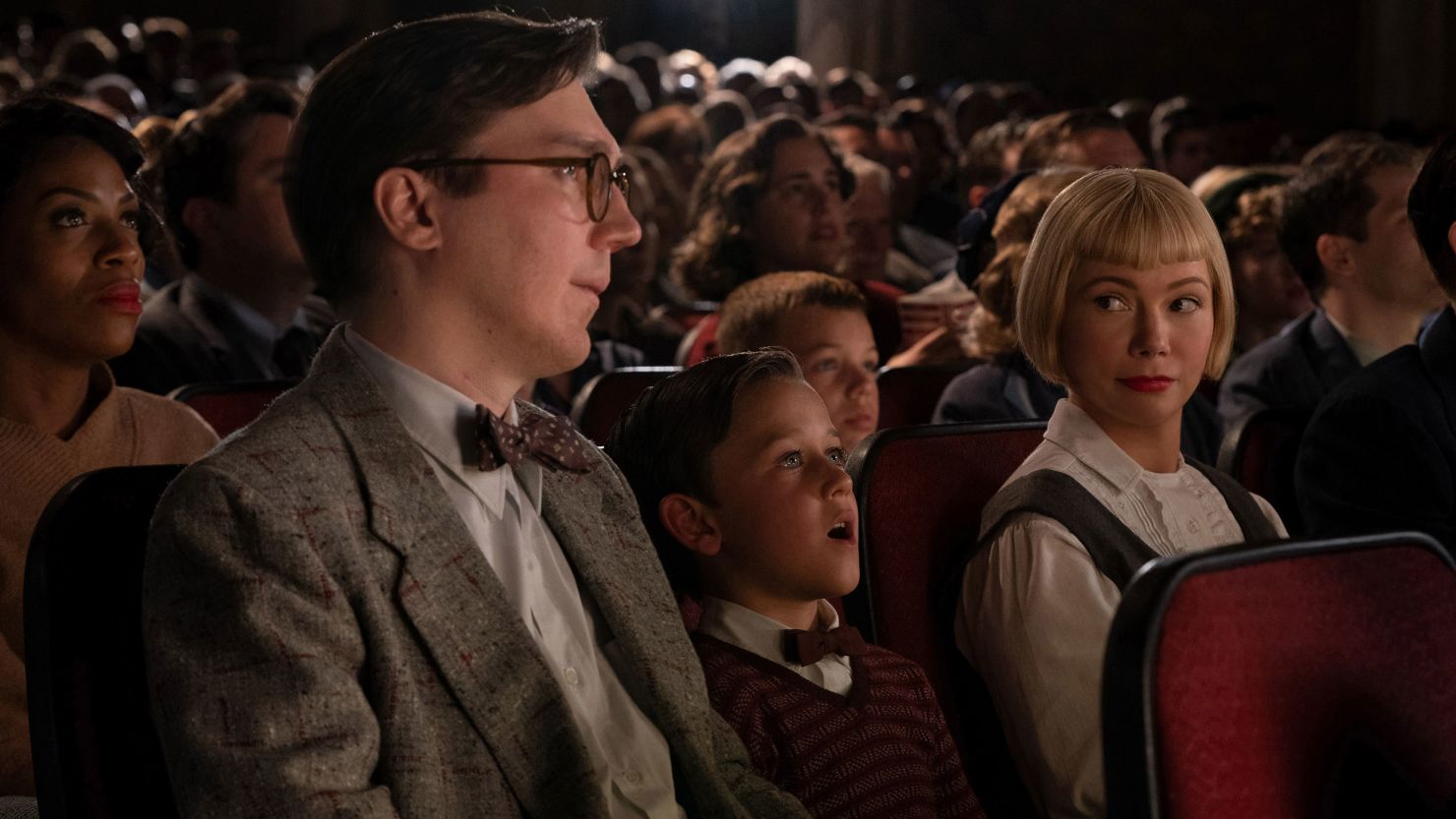“The Fabelmans” allows Steven Spielberg to turn his coming-of-age memories into what amounts to a super-director origin story, recalling both his complicated family life and early love of movies and filmmaking. It’s a deeply personal chronicle from one of cinema’s greatest talents, yielding a movie that features wonderful moments within a somewhat scattered narrative.
The film opens with the young Sammy Fabelman seeing his first movie, “The Greatest Show on Earth,” in 1952. To say the experience affected him profoundly would be an understatement, and his thirst to replicate the process – first on a rudimentary level, and later on an increasingly elaborate scale – is near unquenchable and fascinating to observe.
Still, young Sammy’s formative years go hand in hand with his uncomfortable home life, which includes a free-spirited mother (Michelle Williams), who eagerly supports his creative impulses, and a literal-minded scientific genius of a father (Paul Dano) who sees moviemaking as an impractical “hobby,” as he insists on calling it much to the boy’s dismay.
The unsettled nature of their marriage, and the role of dad’s friend and colleague Bennie (Seth Rogen, strong in a serious role), only becomes more pronounced and awkward as Sammy enters his high-school years, where he’s played, terrifically, by Gabriel LaBelle.
Dad’s work forces the family to move twice, first to Phoenix and later to Northern California, where Sammy must deal with antisemitism, as well as his dawning recognition of his mother’s unhappiness.
Not only directing but sharing script credit with “Angels in America” playwright Tony Kushner (with whom he has collaborated on “Munich,” where the idea for “The Fabelmans” first began percolating, “Lincoln” and most recently “West Side Story”), Spielberg masterfully conveys the sense of wonder that his younger self felt upon discovering movies and seeking to master the craft. Sammy’s impatience with school mystified his father but found channels of support, including a well-timed visit from his grandmother’s colorful brother (Judd Hirsch), who had just enough exposure to showbiz to recognize the teen’s all-consuming passion.
As the title would suggest, “The Fabelmans” takes a measure of license with Spielberg’s biography, but the bones of it are there, complete with his relatable awkwardness in early relationships. The movie also extends his near-50-year partnership with composer John Williams, who delivers a score that reflects the film’s mix of whimsy and angst.
For all that, “The Fabelmans” bumps along somewhat episodically, at its best serving as a valentine to anyone driven to artistic expression, and in weaker portions, threatening to bog down in family melodrama.
The former happily overcomes the latter – and not incidentally, should be catnip to award voters, in the way something like “Cinema Paradiso” was – but the dynamic does somewhat counter the movie’s nostalgic pleasures. Simply put, advance buzz surrounding “The Fabelmans” as an Oscar contender is as much a referendum on this being a relatively weak year for mainstream movies as an endorsement.
Having climbed every mountain Hollywood has to offer, Spielberg has certainly earned the right to indulge in this trip down memory lane, and the fact the movie is being released by Universal – the studio where he cut his professional teeth, directing for TV before his breakthrough with “Jaws” – puts an appropriate bow on the whole package.
“The Fabelmans” isn’t a blockbuster, but it’s a window into what influenced a director who has given us countless screen memories over his storied career. If that’s not quite enough to take the audience on a trip over the moon, it’s definitely worth the price of a ticket to a theater.
“The Fabelmans” premieres in select US theaters on November 11 and expands to wide release on November 23. It’s rated PG-13.




